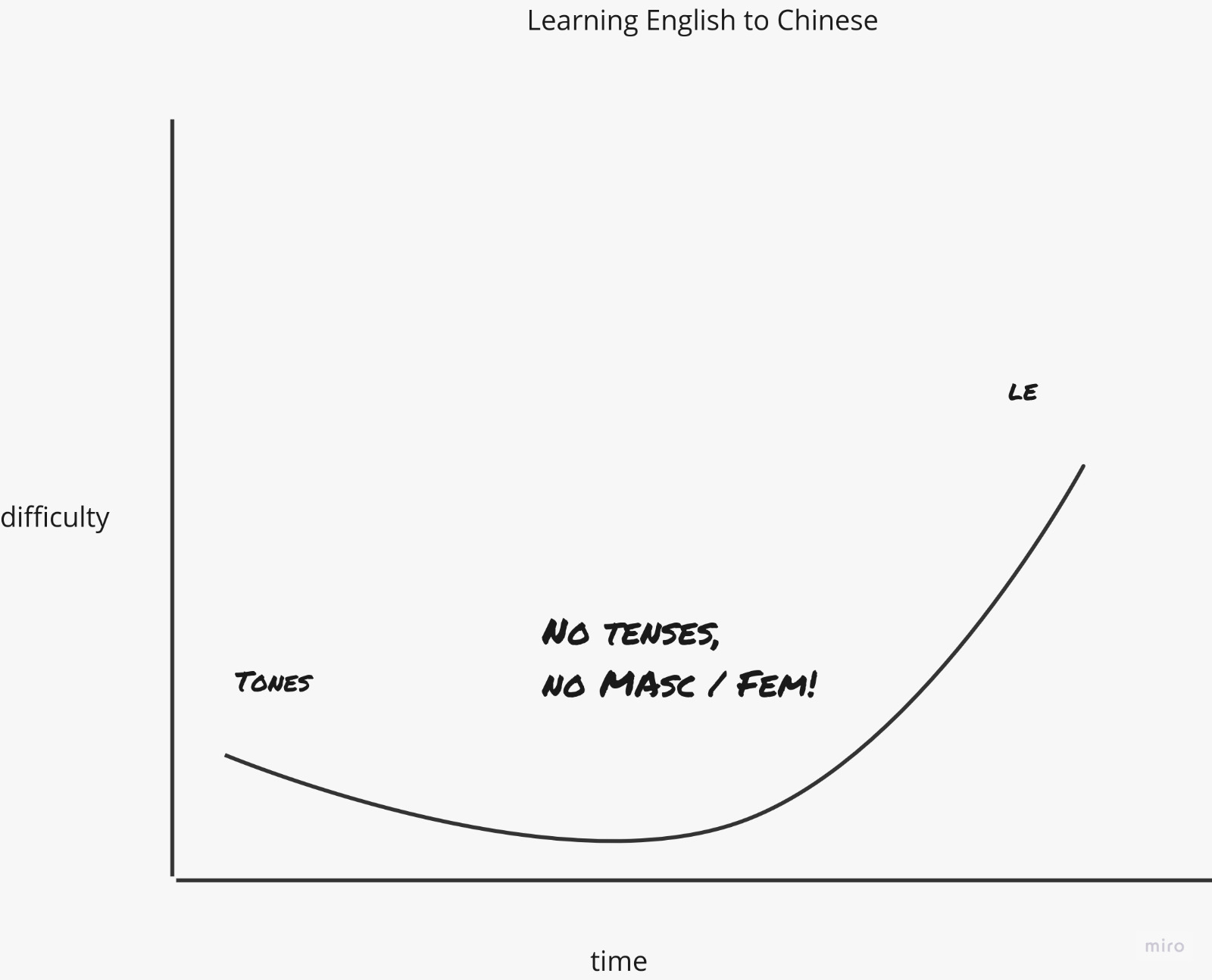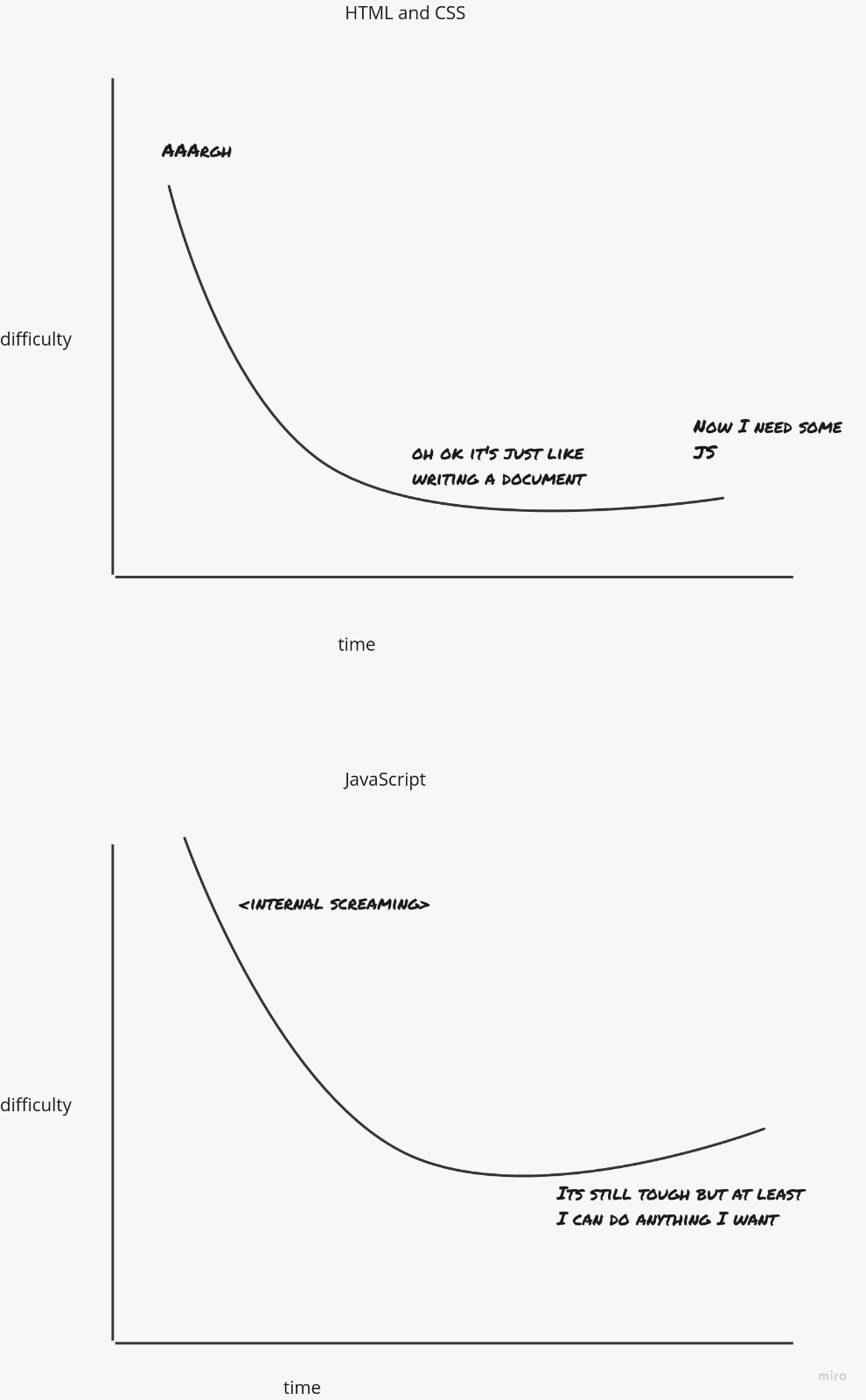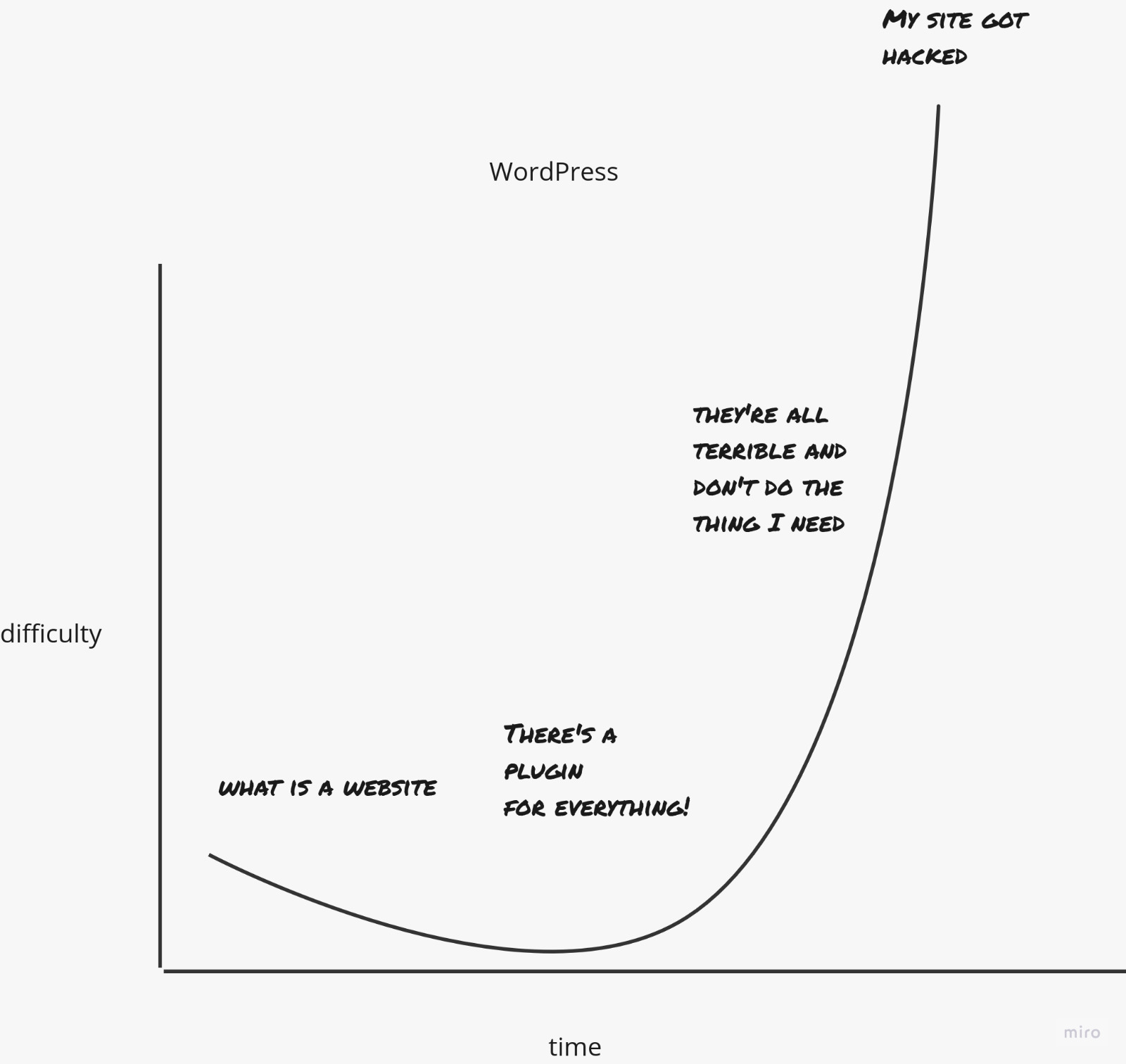I’m getting asked this question a lot lately, so I made a few charts that I hope explains the choices people face when they are thinking about switching, and the effort that might take. I hope it helps someone.
Web development is a funny term isn’t it? It encompasses a wide section of people who build things with the web, and they may or may not be technical.
But then I suppose something similar could be said of people who speak a language: I speak a few, but none of which I could confidently say I’m fluent.
So too web development is a spectrum gradient. Along the gradient are people who code considerably well in JavaScript, and those who build things with off-the-shelf themes.
So I thought I’d draw up some comparisons for you.
Language difficulty charts
You may have seen something similar to these graphs before: for each language you learn, there’s a learning curve: sometimes it’s relatively easy to begin with and gets harder as you learn more about a language.
This one below is for an English speaker learning Chinese. As you see, it starts quite difficult. Tonal languages are challenging for English speakers. Then there’s a dip in the middle, which shows that once you’ve got the idea of tones, you realise the grammar is simpler when compared to English: there’s no tenses which mutate word endings, there’s no masculine / feminine dichotomy to contend with. But then as you learn those things you realise there’s a lot of challenges with context, and communicating time. There are more than 10 different definitions for the partial le (了). So towards the end of your journey learning Chinese, you have a steep rise in difficulty again.

Code learning difficulty chart
I think learning to code can be charted similarly. It starts off rather difficult, but then gets easier with time. You have trouble figuring out what all those chevrons mean, what attributes different elements have, and when to self-close and when not to.
Then you pick up CSS and realise it’s just a selector, a key and a value. Not to say there aren’t challenges: learning how the cascade works is likely going to be a major “eureka!” moment for everyone.
At least, that has been my experience.

But where does WordPress sit on this gradient?
Here.

To start with, it’s easy peasy. Run the installer, grab your pagebuilder plugin, and start dropping boxes onto the page. Add more plugins for forms and other functionality, for Google Analytics, etc etc etc.
Sooner or later youre going to want something that all of the plugins you have access to don’t do. So you do a web search. You find this one dodgy plugin from seven years ago that you have to pay for in Bitcoin.
Two weeks later you find that someone has defaced your website. You delete the defacement. It comes back.
You’ve been hacked.
How do you un-hack a WordPress website? Good luck finding a plugin for that, if you can even install one by this point. Two days later the client calls you saying people can’t access the website because it’s behind a red screen. You’ve been blacklisted from search engines.
Now the learning curve is so steep it’s almost impossible. And people are shouting at you to fix it.
This is the point that people often start questioning their technology choices.
Imagine if you’d questioned them sooner.